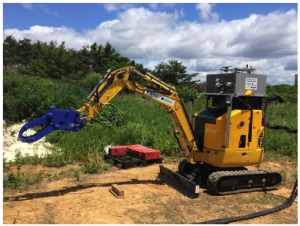The rapid development of AI technologies has far-reaching implications for New Zealand says Chapman Tripp Partner Bruce McClintock, and we should start preparing for them now
Amazon.com CEO Jeff Bezos recently observed that we’re at the earliest days of artificial intelligence and the influence it will have: “It’s hard to overstate how big of an impact it’s going to have on society over the next 20 years”.
As a small country shaped by its distance from others, New Zealand has more to gain than most from the opportunities artificial intelligence brings.
Combined with advances in genetic technology (agribusiness), the internet of things (networked sensor driven devices), 3D manufacturing (the built environment) and nanotechnology (methods, systems and fabrication), AI will lessen and in time remove the economic and resource constraints of distance and size.
Artificial intelligence holds the potential to be a major driver of economic growth and social progress, if we work together to support its development while managing its risks.
Two tracks
In its current state of development, AI is proceeding down two paths. Narrow AI addresses specific domains such as for search engines (think ‘Hey Siri’ or ‘OK Google’) self-driving cars (Uber’s self-driving cars or Google’s Waymo) or strategic games (high frequency trading, AlphaGo or military tactics).
Andrew Ng at the Harvard Business Review website suggests the following simple rule of thumb, “If a typical person can do a mental task with less than one second of thought, we can probably automate it using AI either now or in the near future.” Narrow AI shows us the near path to opportunity and disruption for business and livelihoods.
The far path of AI development is General AI. This seeks an AI system that displays intelligence at least as advanced as a person across the full range of cognitive tasks in any domain. The debate is not about if but rather when – and when could be as soon as 20 years from now.
And, given the nature of technology progress, once AI systems are as smart as we are, they will inevitably be smarter, and exponentially so, virtually a few moments later.
The current leaders in AI research are the global technology giants: Google, Microsoft, Amazon and Facebook. They are all-in to develop both narrow and general AI, bringing enormous resources and research focus to bear.
Alongside them, leaders and innovators in every sector are starting to engage, as everyone become aware of both the risks and opportunities AI brings for them.
The Chapman Tripp and Institute of Directors’ white paper, Determining our future: Artificial Intelligence, released early this year, is a call for action to public and private sector leaders to work together to promote the greater development of AI technologies and to ensure there is a co-ordinated approach to prepare for the effects AI will have on the New Zealand economy, work, education and welfare.
Sector specifics
Each sector has a role to play. For industry, the risks and opportunities will speak with increasing volume, requiring businesses to invest so that they stay with if not ahead of current and emerging competitors.
Enterprises must consider a range of factors when applying AI. To take one example, AI must be introduced responsibly to ensure that it is in compliance with current regulation.
This will require some consideration of regulatory requirements of general application, such as for health and safety, as well as those specific to the industry (such as for transportation).
Beyond this, our view is that industry will inevitably be drawn into areas that have traditionally been of less immediate concern.
AI and associated technologies will very likely lead to larger scale redeployment of personnel. It will also require deeper engagement with other sectors that traditionally may not have been part of an industry’s supply chain, for example with technology companies.
A future in which society looks to industry explicitly to have greater responsibility for societal impacts of technological development is not hard to foresee.
Government has an important role to set the agenda for public conversations about AI. It is the New Zealand way in recent times for regulation to be well-targeted and light-handed.
Even so, there will be a role for government to monitor the safety and fairness of AI applications, and to adapt our regulatory framework to support innovation and protect the public.
Beyond this, government can help in the development of a skilled workforce and help avoid adverse economic consequences.
The potential economic and social opportunities from AI technologies are immense. The public and private sectors should move promptly and together to ensure that we are as well as prepared as we can be to take advantage of them.



